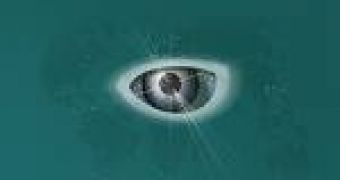On the 23rd of July, 2007 ESET announced that "The next generation of Server Products for Linux and FreeBSD is now available in Beta versions." In other words, ESET said that ESET Mail Security, ESET File Security and ESET Gateway Security (which is a new program) will be the solution for of those who have Linux and FreeBSD. The first, ESET Mail Security is meant to protect e-mail messages and e-mail gateway servers against known and unknown viruses, worms, Trojans, spyware, phishing, spam and other Internet threats and the Eset [ADMARK] website also says that POP3, SMTP and IMAP protocols can be transparently scanned. ESET File Security is said to provide antivirus protection for file servers and can also offer a user-friendly web administration interface. The new program for gateway servers, ESET Gateway Security is meant to be the solution for HTTP and FTP protocols.
This of course is all great news but let's not forget that no Anitivirus solution is 100% secure and that Nod32 has had its problems as a highly critical vulnerability has been discovered in many of its main products. Moreover - according to Secunia - all the applications that have virus definitions prior to version 2.2289 are affected by the flaw so the solution is to update the products to the latest release.
This is highly recommended because it seems that a successful exploitation of the vulnerability helps an attacker compromise an affected system, allowing him to run commands with the same privileges of the logged user. "A race-condition error when processing CAB archives can be exploited to cause a heap corruption when e.g. scanning a specially crafted CAB archive. Successful exploitation may allow execution of arbitrary code. [?] A divide-by-zero error when processing Aspack and FSG packed files can be exploited to e.g. crash the application via a specially crafted Aspack or FSG packed file," Secunia said about two of the found vulnerabilities.
And that's not all. As you may have heard or experienced yourself, fake alerts have been sent to users at some point. Of course an excuse existed at the time: "On July 1st at 12:41 AM CET ESET became aware of a false positive. Some advertising banners were incorrectly flagged as being infected with the JavaScript trojan JS/Tivso.14a.gen Trojan. By 2:00 AM CET update version 2366 went out, correcting the misdetection," said then Randy Abrams, Director of Technical Education. But I can only hope that that's all in the past and Eset has dealt with all the problems some of its products have had because many people rely daily on NOD32 and other ESET applications to keep their information safe.

 14 DAY TRIAL //
14 DAY TRIAL //